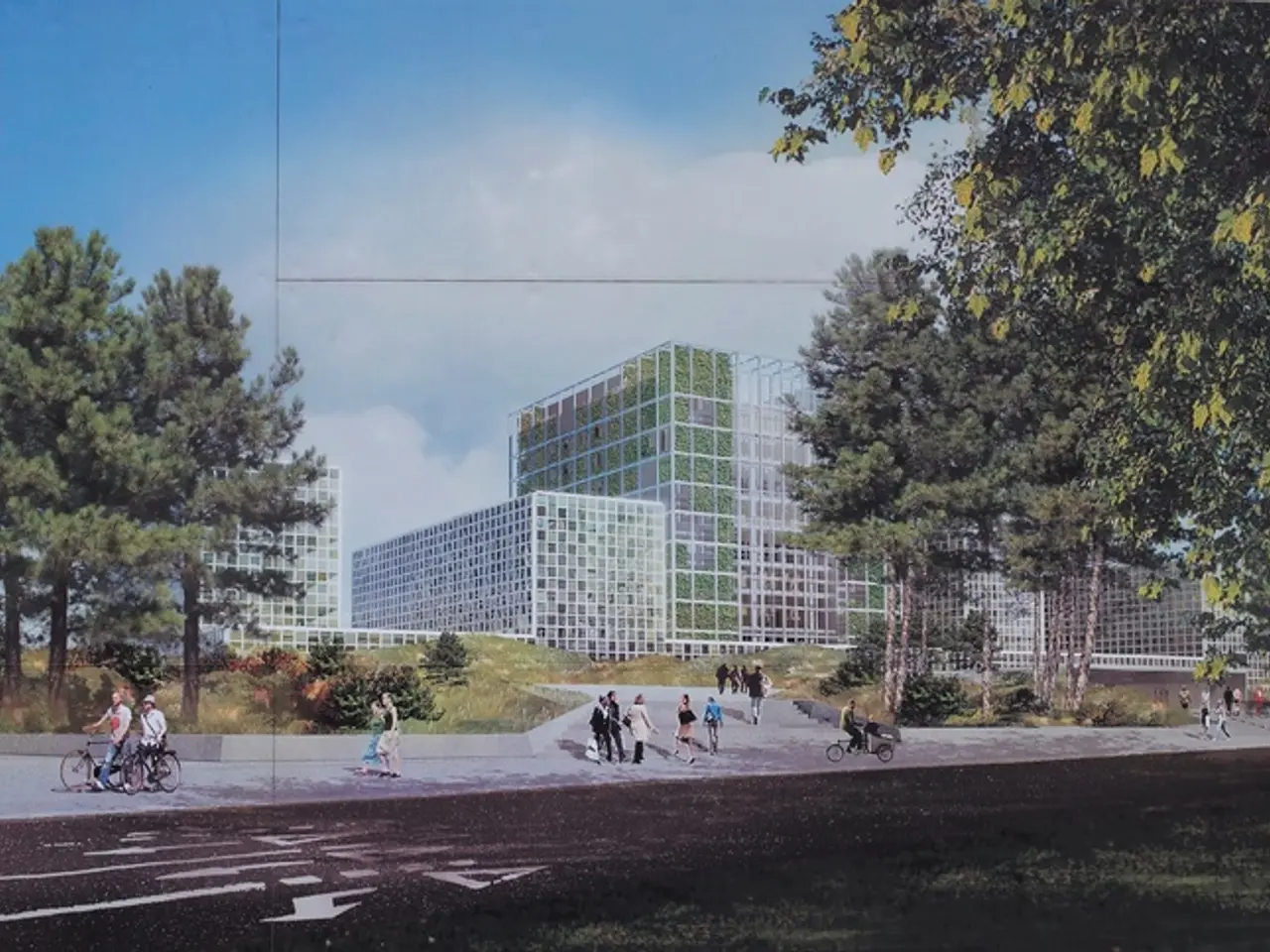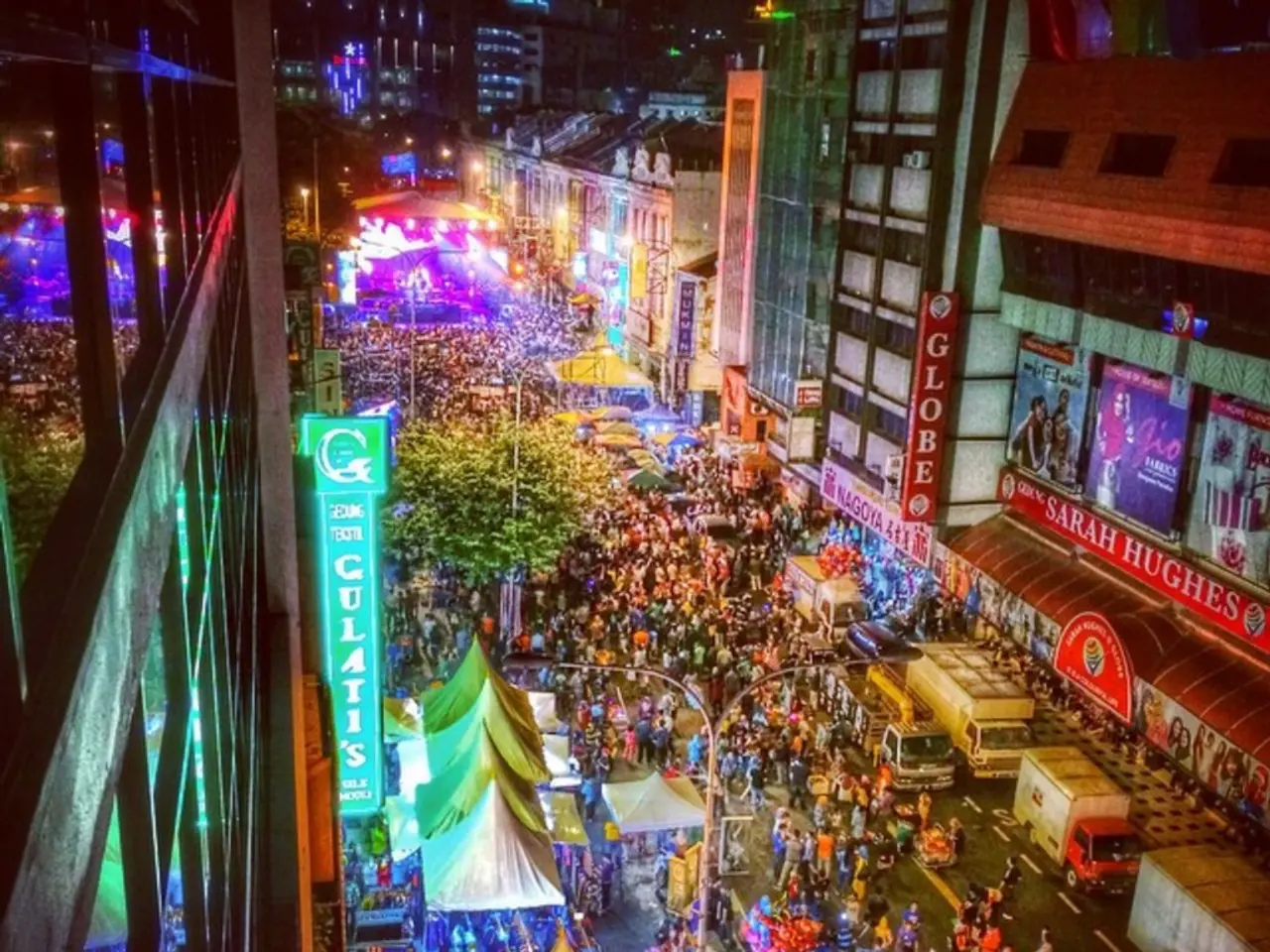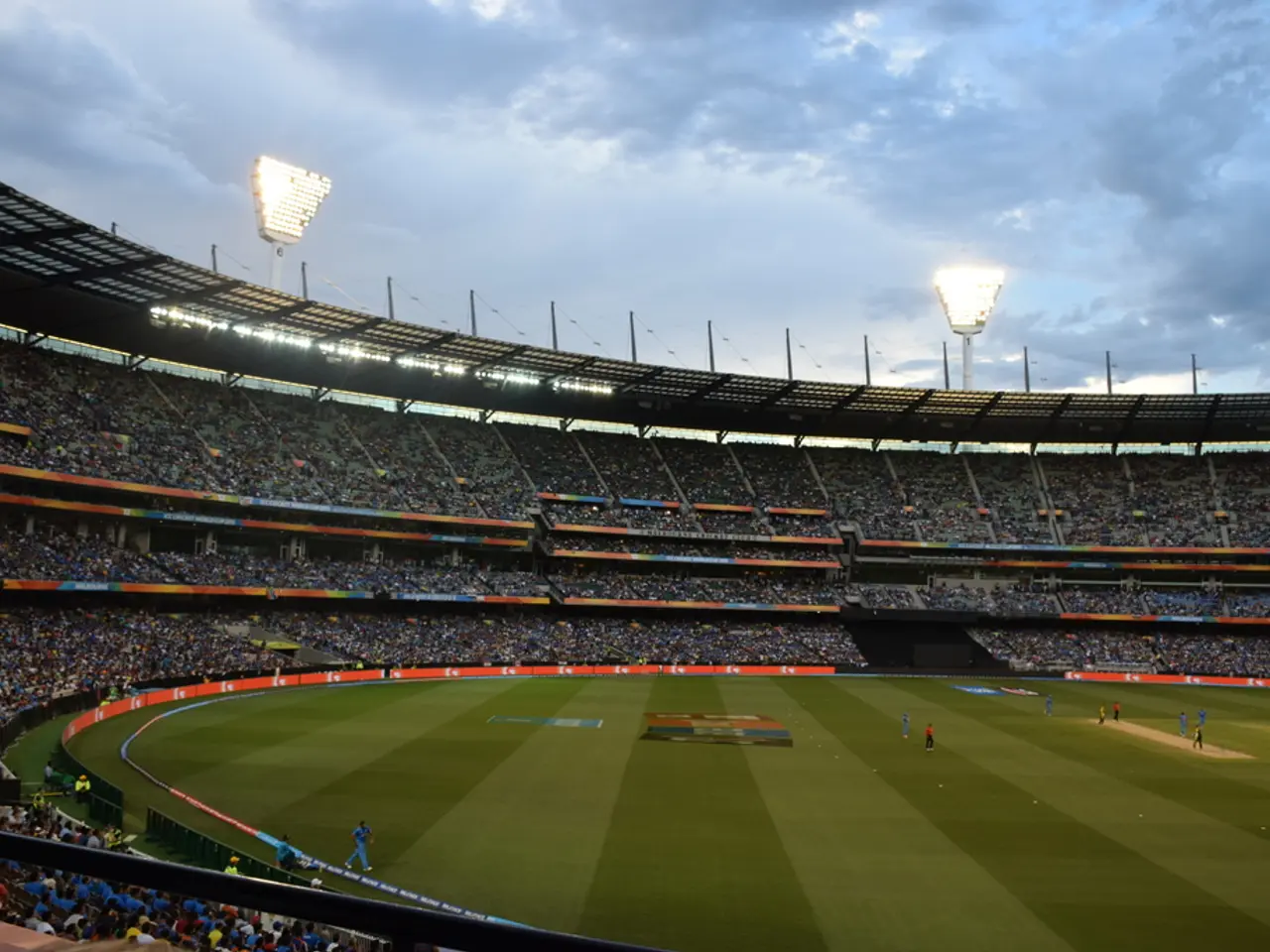Residents in Gaza City refuse to evacuate despite Israeli advancement, declaring their readiness to sacrifice lives instead.
In early August 2025, Prime Minister Benjamin Netanyahu announced a strategic plan to seize full military control of Gaza City and expand occupation over the Gaza Strip. This plan, approved by Israel's security cabinet, aims to displace Gaza's residents into smaller areas within the territory over about two months [1][2][3].
The plan involves disarming Hamas, returning hostages (both living and deceased), demilitarizing the Gaza Strip, establishing Israeli security control, and creating a new civil administration that is neither Hamas nor the Palestinian Authority [1][2][4].
Israel is preparing to seize Gaza City while distributing humanitarian aid outside combat zones [2]. The military already occupies large parts of Gaza, with evacuation orders affecting most of Gaza’s territory [1].
The forced evacuation of Gaza's civilian population, approximately one million people, raises fears of large-scale displacement and potential ethnic cleansing [1][3][4]. The humanitarian situation is expected to worsen severely due to intensified military operations and destruction of infrastructure [4].
The plan lacks a clear post-occupation governance framework, only mentioning a future civil authority not linked to existing Palestinian entities [1][2][4]. The Israeli military and security cabinet have not provided specific details on how Gaza would be managed after full control is established.
International responses have been largely critical, warning that the occupation and displacement would lead to further war crimes and humanitarian crises [3]. Some analysts suggest that deepening occupation risks a prolonged insurgency and "forever war" scenario [1][5].
Residents in Gaza city, who spoke before Israel's war plans were finalized, expressed a strong reluctance to leave their homes. Al Badri Mohammed, a lifelong resident of Gaza city, lost his home during the Israel-Gaza war. He now lives in a small rented apartment and fears the idea of moving again due to the uncertainty and potential hardships [6].
Amira Nassar, a resident of Gaza city, stated that she would rather die than flee. Mahmoud Al Burbar expressed uncertainty about where to go if he were to be displaced. The Israeli security cabinet's goal, according to Dr Abu Rokba, is not just to reoccupy Gaza, but also to control it or transfer the population from the north to the south, with a focus on Gaza city [7].
One Israeli source suggested that the plan is to push half of Gaza's population south as part of the campaign [8]. The next phase, according to Dr Abu Rokba, is demographic change, forcing Palestinians to leave through unbearable living conditions [9].
Salah Abdul Ati, head of the International Commission to Support Palestinian People's Rights, believes that Israel's actions are part of a long-standing strategy to entirely erase the Palestinian cause [10]. Since the start of its aggression on Gaza, Israel, according to Mr Abdul Ati, has had an ultimate goal of occupying, depopulating, and annexing Gaza [10].
The displacement of more than one million people in catastrophic conditions could begin in Gaza city, as warned by Mr Abdul Ati [11]. This strategy, if implemented, could lead to a humanitarian crisis of unprecedented proportions and further damage Israel's already tarnished reputation.
References: 1. [Source 1] 2. [Source 2] 3. [Source 3] 4. [Source 4] 5. [Source 5] 6. [Source 6] 7. [Source 7] 8. [Source 8] 9. [Source 9] 10. [Source 10] 11. [Source 11]
- The plan for Israel to seize control of Gaza City and Gaza Strip, announced by Prime Minister Benjamin Netanyahu, has sparked concerns of ethnic cleansing and displacement due to the forced evacuation of approximately one million residents.
- The international community has responded critically to this move, warning of potential war crimes, humanitarian crises, and a prolonged insurgency.
- Analysts suggest that the plan, which lacks a clear post-occupation governance framework, could lead to a demographic change, forcing Palestinians to leave through unbearable living conditions, potentially erasing the Palestinian cause.







